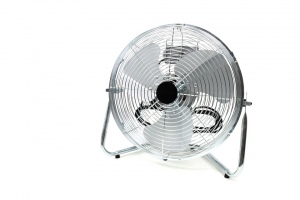Learning how to de-stress is crucial, we are all so busy with careers, part time jobs, families, children, partners, friends and social clubs. We take on so much strain on a daily basis, but how many practises do you know to de-stress and relax after a stressful day? There are a range of straightforward, effective, self-help techniques that you can use on a daily basis to restore peace and tranquillity. If you are struggling with career stress take a look at the tips below, to help you simplify your 9 to 5.
- A Relaxation Routine
Do you often suffer the dreaded wrinkled brow? Racing pulse? Sweaty palms? It’s time to relax. We all carry around certain stresses with us, especially if you have a high pressured job role, a large family or just a heavy workload. Believe it or not there are plenty of easy ways to reduce your stress levels on a daily basis, and one of these way is to instil a simple relaxation routine, to start try an easy breathing technique. Prepare somewhere quiet and spacious, shut your eyes, breathe in for 5 seconds, hold for 3 and then slowly breathe out for 5 seconds. Repeat as many times as necessary in order to feel relaxed and clam.
- Don’t Hold Grudges!
Although it may be tempting to rehash the details of the colleague that bad mouthed you in your appraisal, via the employee performance management software. This 360 degree software allows everyone to assess you at work, from colleagues, to bosses, suppliers and customers! It may feel good at the time, but it probably isn’t going to help your stress levels in the long run. Forgiving people is something that many of us find challenging, but be able to let go of negative feelings means that you let go of any stresses, worries or pent up anger you may have. The built up frustration isn’t healthy, allow these unnecessary stresses to wash over you and make room for the more important issues.
- Nature
Just looking out your window can have a relaxing effect! In a study conducted by Peter Kahn, a professor at University of Washington, participants in an office were shown one of three views: a natural setting, a digital display of the same scene, and one with no view. When stress levels were artificially increased, those looking at the real natural scene returned to their normal heart rate quicker than the others. Proving that bringing the outdoors in can have a detrimental effect on your level of stress, so why not try a walk on your lunch break, stretch your legs and go back to work refocused. Researches have suggested that a plant on your desk can boost productivity to up 15% – rubber ones don’t count!
- Get a Head Start
Studies have found that the less rushed you feel in the morning, the less stressed you’ll be for the rest of the day. We all know this can seem like an unrealistic task when you are busy trying to get the children ready for school, your partner ready for work, starting any preparation for dinner that night,
Making sure everyone has their lunches, their schools bags packed – all whilst trying to get ready yourself! Stressful to say the least, however, by just getting up 20 minutes earlier you can allow yourself more time in the morning for you to get ready, making the whole house a calmer one. IF you can prepare anything in the evening like lunches, children’s school bags and uniforms out and ready.
- Worry Time
Having trouble deciding where to begin? Close your office door or go sit in an empty conference room and think about what’s stressing you out, noted on a piece of paper everything you can think of. Divide the page into three columns: what I’m worrying about, why it is worrying me and what the worst scenario outcome is. Once you’ve confront the worst-case scenario and realize that it probably won’t ever happen, you can get back to work with a clear head safe in the knowledge that everything is noted down and you don’t have to worry about remembering everything.
- Stretch
It’s important to get a good night’s sleep, to ensure you feel well rested and proactive the next day. However, sloping off to bed early in order to avoid exercise can be very bad for you. If you don’t have time to exercise in the evenings then why not do it at your desk work…too simple? This exercise is suggested to be as refreshing a nap! Firstly keep your both feet on the floor, stack your forearms on the edge of the table, your chair back away from your desk so your spine is extended. Rest your forehead on your arms for a minute or two, shut your eyes and relax. This type of exercise is especially important if you have a deskbound job role. Remember to stretch your legs too, as any movement will reduce the likelihood of blood clots that can result from sitting too long in one position.
- Plan Ahead
When work is challenging, devote some of your down time, like weekends and evenings, to making a to-do list for the next week. I know it isn’t everyone’s idea of fun, but it can aid you in having a relaxing, work free weekend. By make a list, place boxes next to each item, and tick off the boxes as you get things done, you will avoid forgetting anything. Advantages include; staying focused for longer, enjoying your time off, less likely to forget things and it’s so satisfying ticking those boxes off!









